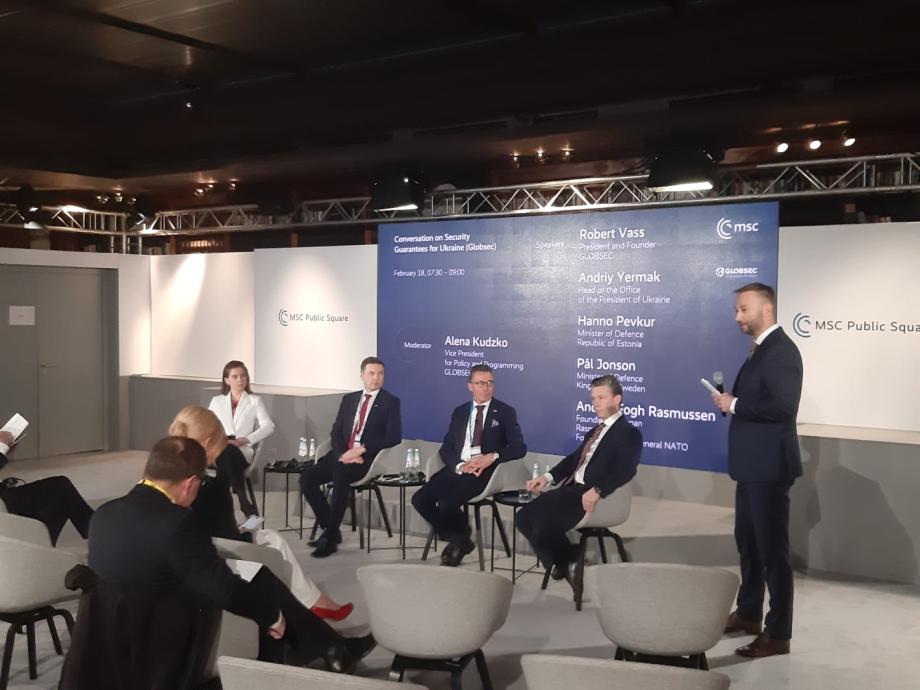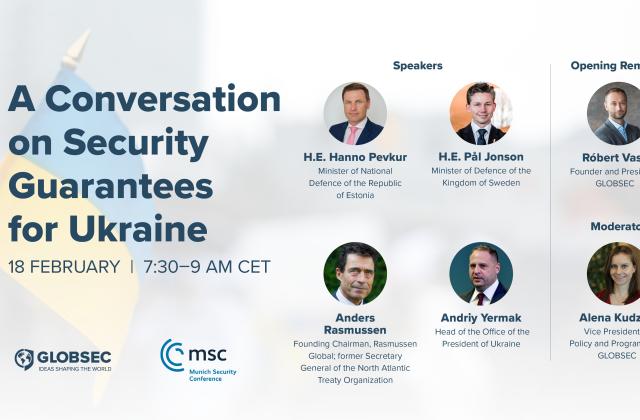GLOBSEC discussion at MSC: Overwhelming your enemy to win

Bright and early, GLOBSEC and partners kicked off Day 2 of the Munich Security Conference with a timely discussion on security guarantees for Ukraine.
The stakes to defeat Russia are at an all time high, putting an impetus on Ukraine’s allies to help Kyiv deliver the knockout punch. Although victory over Russia is the ultimate short-term goal, the discussion yielded a broad perspective on both the medium and long-term security perspectives available for Ukraine. A constant theme throughout the conversation was the underwhelming state of the
West’s defence industrial base and its potential inability to sustain current deliveries and ramp up production for Ukraine. The panel proved to be a great catalyst for those in attendance with a range of dynamic questions being asked, elevating the session content.
Welcoming:
- Robert Vass, Founder and President of GLOBSEC
Speakers:
- Hanno Pevkur, Minister of National Defence of the Republic of Estonia
- Pål Jonson, Minister of Defence of the Kingdom of Sweden
- Anders Rasmussen, Founding Chairman, Rasmussen Global; former Secretary General of the North Atlantic Treaty Organization
- Andriy Yermak, Head of the Office of the President of Ukraine
Moderator:
- Alena Kudzko, Vice President for Policy and Programming, GLOBSEC
Top takeaways
- As the speakers agreed, the innovative feature of the security compact is the possibility to build Ukrainian military self-sufficiency of by significantly increasing its capabilities to defend its territory without aid of foreign countries.
- For Ukraine, immediate NATO membership is not realistic. Consequently, the security compact represents an alternative instrument to ensure the respect of the territorial integrity of the country in the aftermath of the war.
- The priorities of NATO Allies for the upcoming Vilnius NATO Summit will be the discussion over the coordination of the existing military efforts and the creation of security guarantees for Ukraine to avoid other failures such as the Budapest Memorandum.
- There was a consensus over the necessity for the EU member states to rethink their priorities and start redrawing their security strategies not just at the political level, but also boosting the investments in the defence industry, and by extension tightening cooperation with the private sector.
- The EU and NATO should work jointly to upgrade military cooperation with Ukraine by providing more lethal weapons while better coordinating the efforts to maximize operational efficiency.
Kyiv Security Compact: http://bitly.ws/AqkB
Rewatch the session: http://bitly.ws/AH9Q
